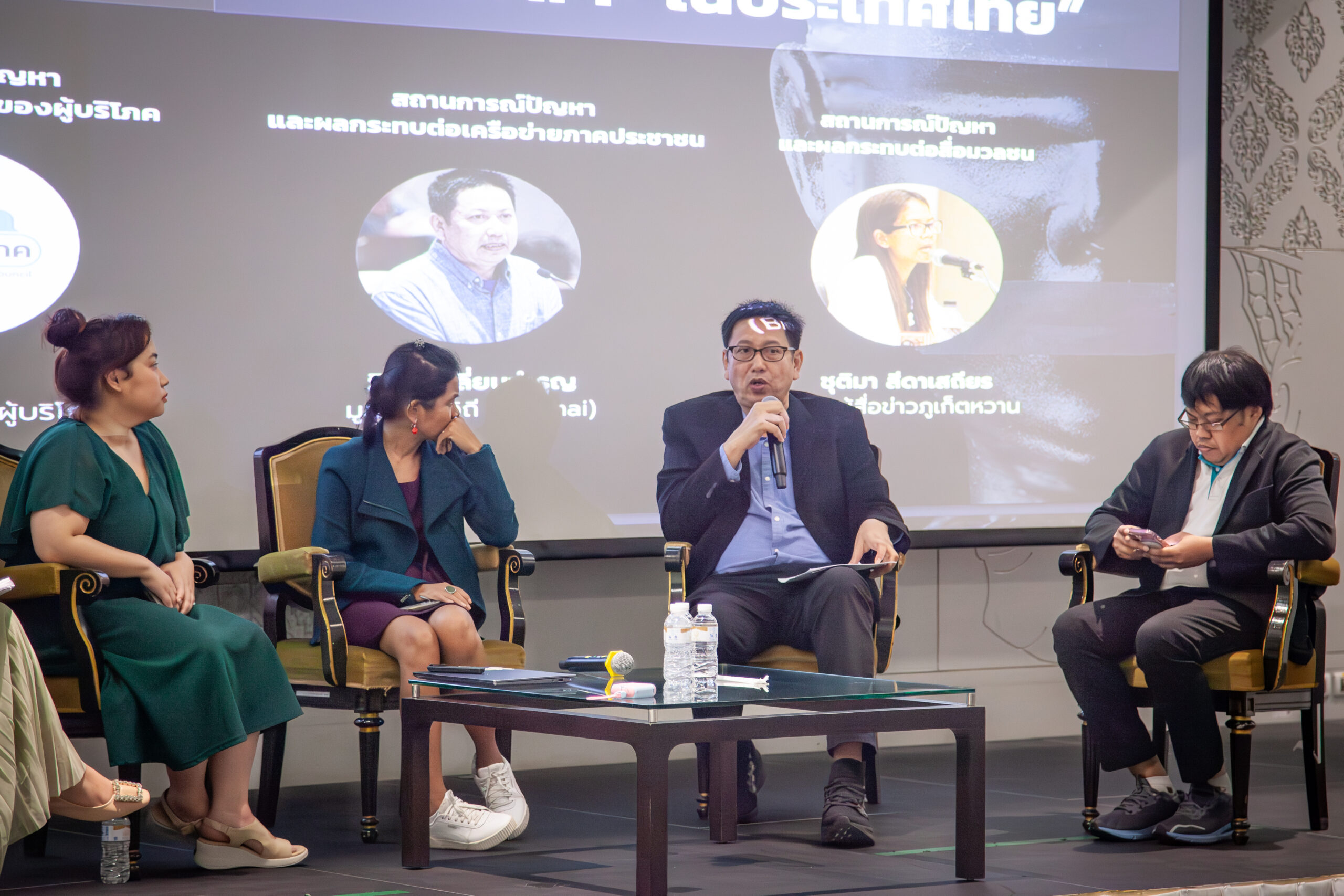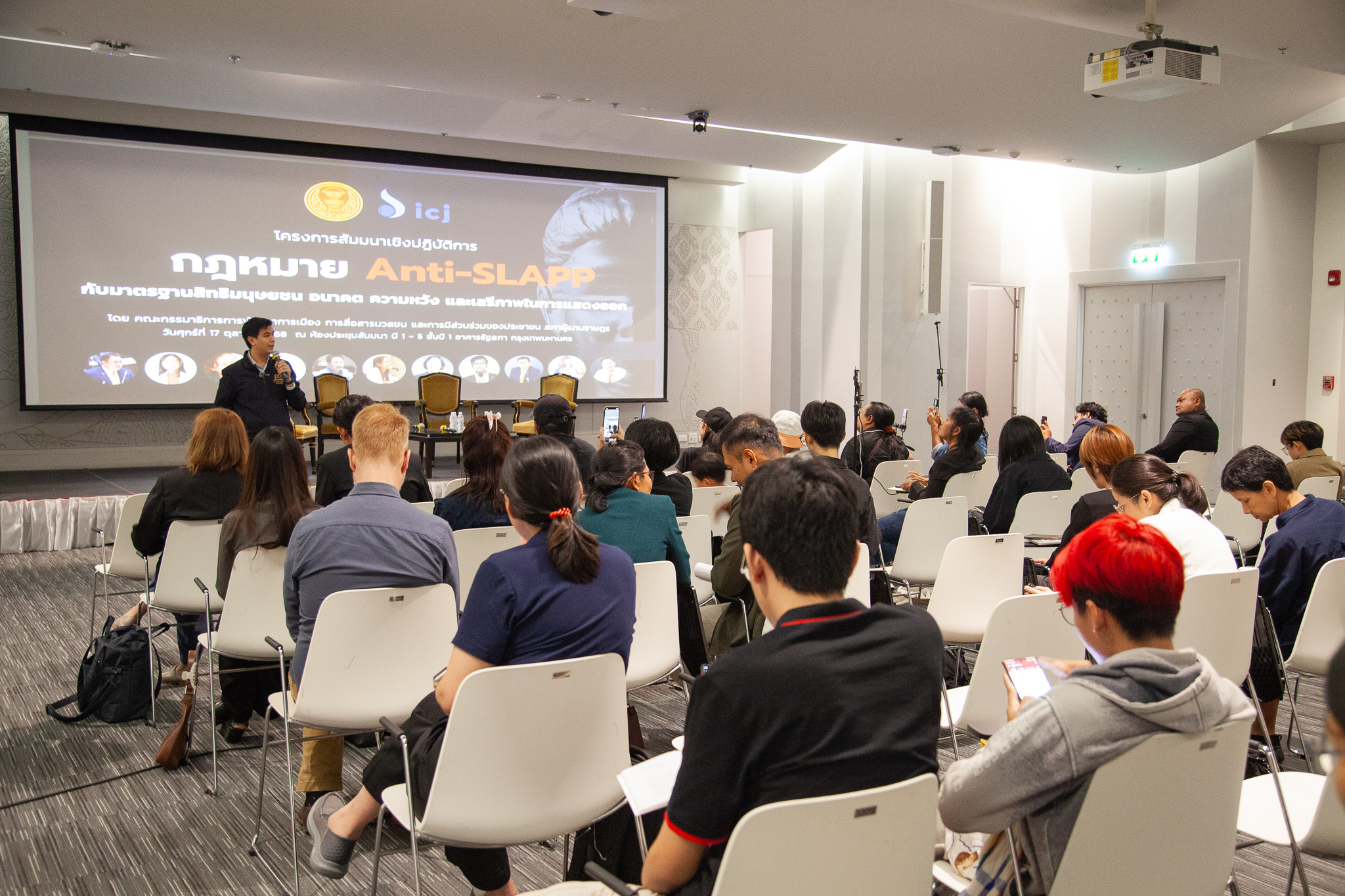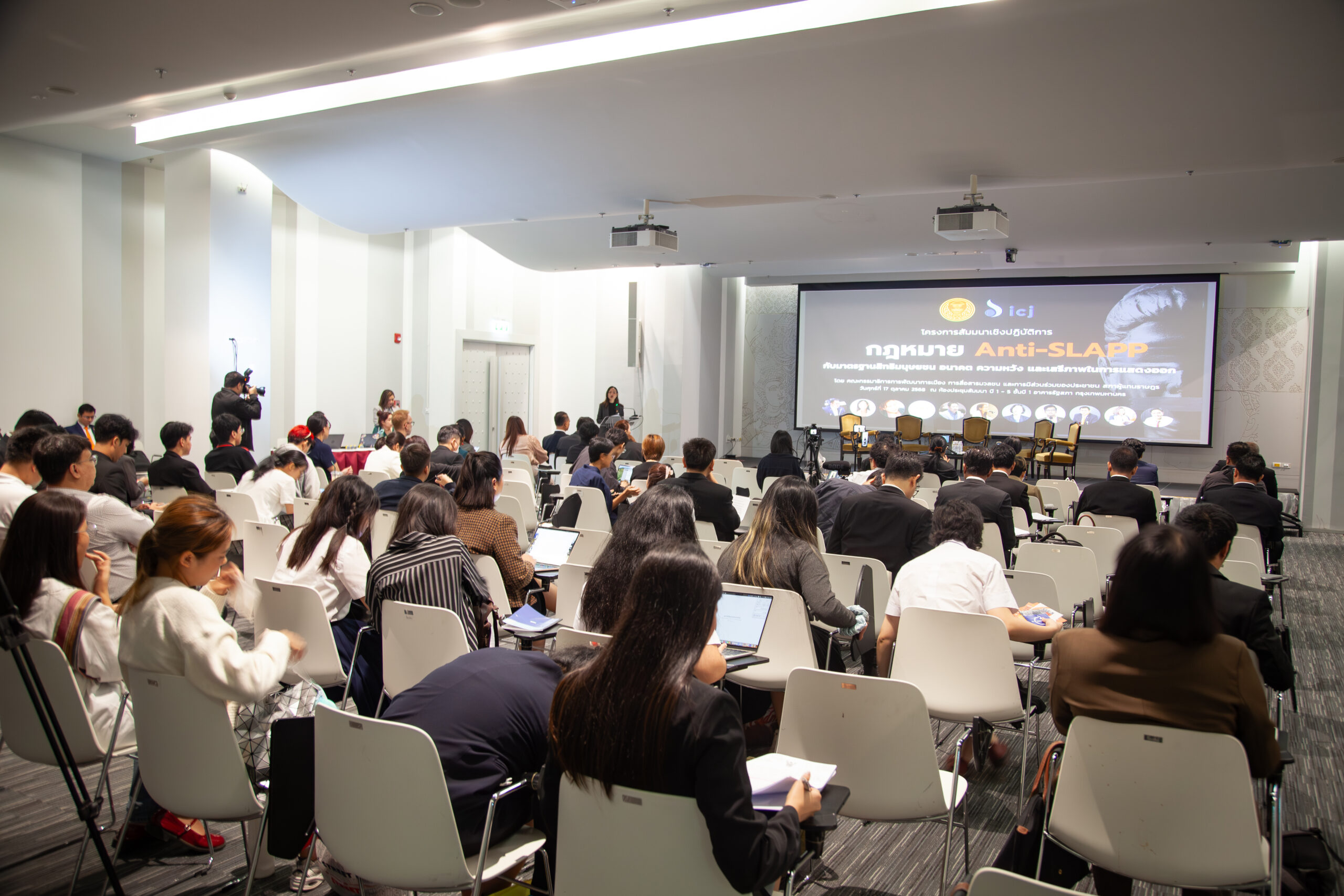On 17 October 2025, the International Commission of Jurists (ICJ), together with the Parliamentary Standing Committee on Political Development, Mass Communications, and Public Participation of Thailand’s House of Representatives, co-hosted a public dialogue at the Thai Parliament calling for the urgent review and adoption of measures to protect civic space and those exercising their rights to free expression and participation against so-called strategic lawsuits against public participation (SLAPPs).
SLAPPs consist of lawsuits or threats of litigation—often against environmental activists, human rights defenders, journalists, non-governmental organizations, academics and media workers—based on abusive tactics with the aim or effect of putting an end to public participation and silencing critical reports on matters of public interest.
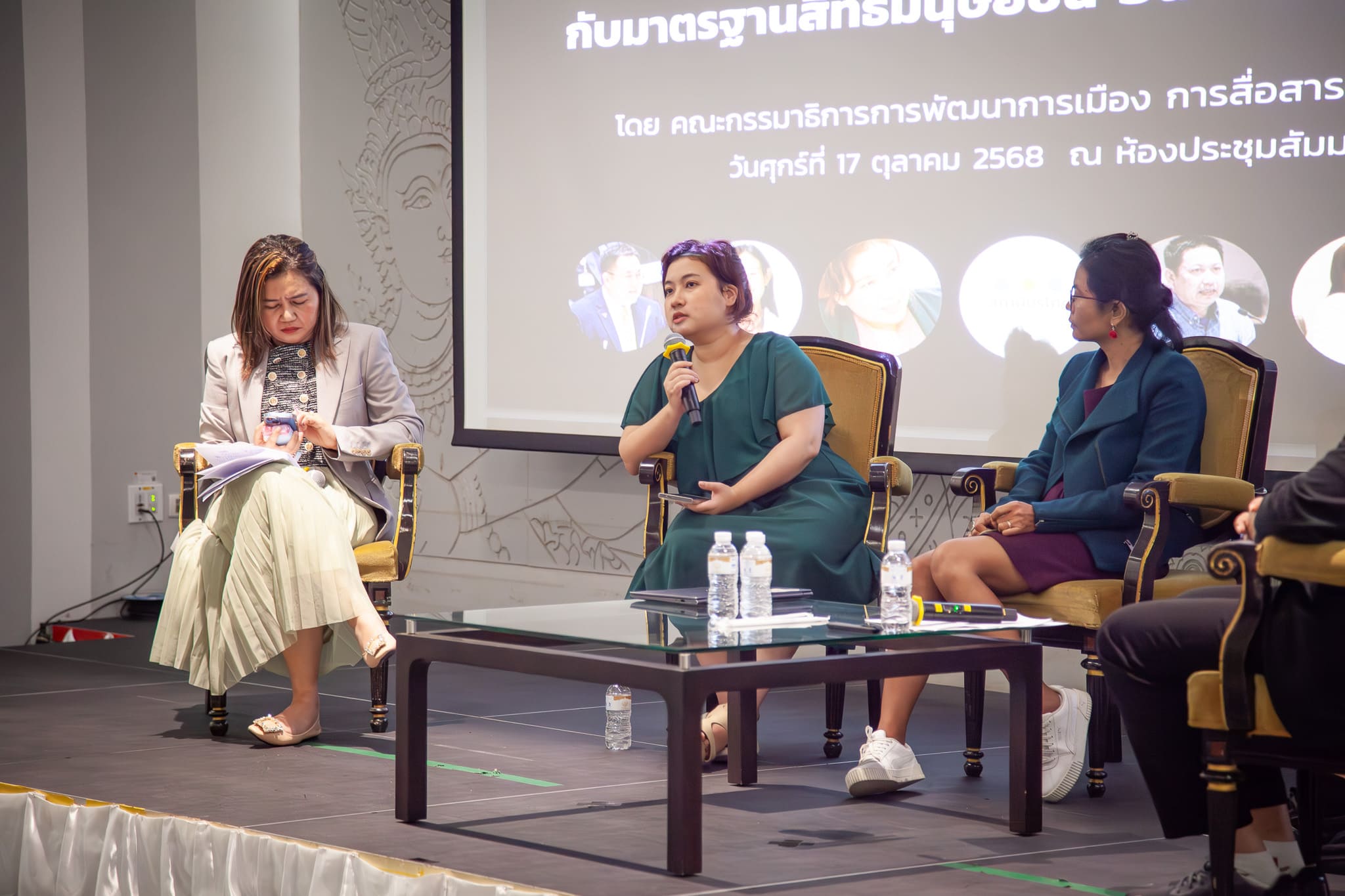
“While Thailand now has several legal provisions—particularly Section 161/1 of the Criminal Procedure Code—intended to prevent SLAPPs by empowering courts to dismiss cases filed in bad faith or based on distorted facts, in practice these provisions have rarely been applied. Courts are often reluctant to exercise this power, rendering it ineffective,” said Sanhawan Srisod, ICJ Senior Legal Adviser, who spoke at the panel discussion.
The dialogue, titled “Anti-SLAPP Law and International Human Rights Standards: Future, Hope, and Freedom of Expression”, brought together approximately 80 participants, including parliamentarians, members of the media, and the public. The discussion began with an overview of Thailand’s current legal framework against SLAPPs and its limitations.
Sanhawan Srisod further noted that Thailand’s criminal defamation law and Computer-Related Crime Act are often misused as tools to silence critics.
“These laws should be amended, as their overly broad wording enables abusive interpretations. Moreover, the use of criminal sanctions, making it easy to initiate abusive legal actions, creates a chilling effect on freedom of expression,” she added.
The discussion then turned to how SLAPPs continue to undermine the rule of law, media freedom, consumer protection, and environmental advocacy in Thailand. Two human rights defenders who have faced SLAPP lawsuits—Chutima Sidasathian, a journalist and human rights defender, and Vitoon Lianjamroon, an environmental rights advocate—shared their personal experiences of being targeted for their work. They were joined by Sophon Nurat from the Thailand Consumers Council, who spoke about the Council’s efforts to support consumers facing SLAPP litigation.
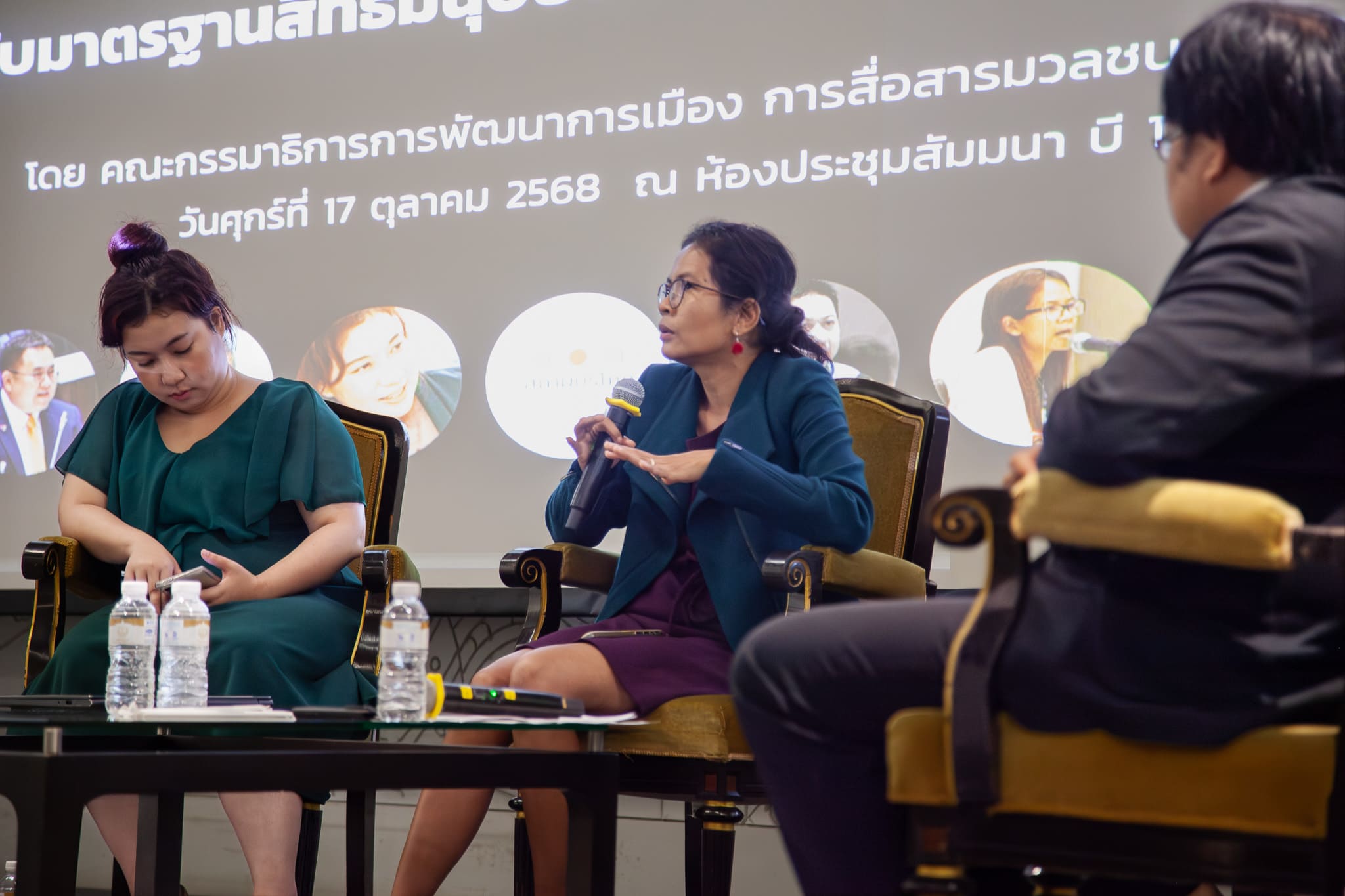
“Being sued has created an atmosphere of fear in daily life and work. There is constant worry about reporting news without facing lawsuits, even when acting in good faith and relying on verified information. This fear has led to silence and self-censorship among colleagues.” said Sidasathian.
The dialogue also examined ongoing initiatives, such as draft legislative proposals addressing existing gaps through amendments to the criminal defamation law, including replacing imprisonment with regulatory fines, and amendments to the Criminal and Civil Procedure Codes to explicitly empower public prosecutors and judges to dismiss cases where defendants have simply exercised their constitutional rights and acted in the public interest.
These draft amendments, initiated by the Ministry of Justice and the People Party, are expected to be submitted to Parliament in the coming months.
Background
Thailand’s current anti-SLAPP framework is considered to include Sections 161/1 and 165/2 of the Criminal Procedure Code and Section 132 of the Organic Act on Anti-Corruption (amended in June 2025).
Section 161/1 allows courts to dismiss private criminal complaints filed in bad faith, while Section 165/2 permits defendants to present evidence during preliminary hearings to challenge the merits of such cases.
Section 132 protects individuals who, in good faith, provide information or testimony to the National Anti-Corruption Commission (NACC) from civil, criminal or disciplinary liability.
Other speakers at the dialogue included: Chatr Supatwanich, Chairperson of the Parliamentary Standing Committee on Political Development, Mass Communications, and Public Participation; Sarinee Achavanuntakul, an independent academic; Chonthicha Jaengraew and Anusorn Kaewwichian from the People Party; and Anon Yangkun from the Ministry of Justice’s Rights and Liberties Protection Department. Saovanee Kaewjullakarn, ICJ Associate Legal Adviser, moderated the session.
The session livestream can be accessed here.
Further reading
ICJ recommendations to the Ministry of Justice on strengthening Thailand’s anti-SLAPP law
Dictating the Internet: Curtailing Free Expression and Information Online in Thailand
ICJ advocacy materials on Thailand’s anti-SLAPP law (available in English and Thai)
Thailand: New law protecting SLAPPs marks progress but much more is needed
Contact
Sanhawan Srisod, Senior Legal Adviser, Legal and Policy Office, e: sanhawan.srisod@icj.org
Saovanee Kaewjullakarn, Associate Legal Adviser, ICJ Asia and the Pacific Programme, e: saovanee.kaewjullakarn@icj.org
